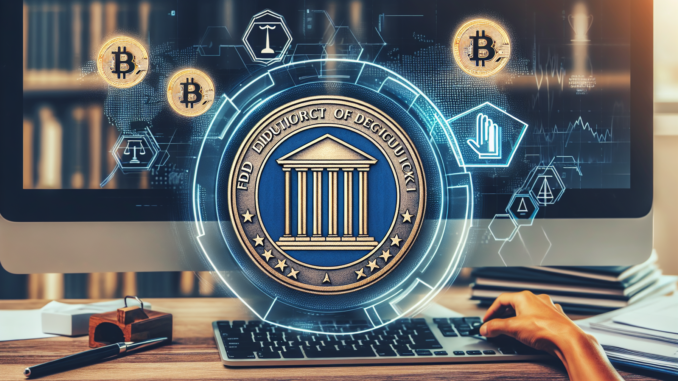
Coinbase has once again brought explosive information about the U.S. agency Federal Deposit Insurance Corporation (FDIC) to light. The FDIC is said to have instructed banks to temporarily halt their crypto services. These revelations carry significant implications for the crypto industry and raise questions about the relationship between regulators and the emerging crypto sector.
## Background: The Role of the FDIC in the Financial Sector
The Federal Deposit Insurance Corporation (FDIC) is an independent agency in the U.S. primarily responsible for protecting savers through deposit insurance. Its role also includes supervising banks and ensuring their stability. As cryptocurrencies become an important part of the financial ecosystem, the FDIC increasingly takes on a regulatory position in this area.
## The Latest Revelations from Coinbase
Coinbase, one of the leading crypto exchanges in the world, has gained insights into documents through the Freedom of Information Act (FOIA) that show the FDIC repeatedly urged American banks to halt their crypto business operations. These requests were justified by concerns about financial stability and regulatory uncertainties. The repeated demands from the FDIC raise concerns about the future of the crypto sector in the U.S.
## Impact on Crypto Markets
The FDIC’s call for banks to cease their crypto services may have significant impacts on crypto markets. Banks, possibly succumbing to FDIC pressure out of fear of regulatory repercussions, might drastically reduce services like trading or holding cryptocurrencies for their clients. This, in turn, could significantly slow down the adoption and growth of cryptocurrencies in the U.S.
## Technological and Financial Implications
The FDIC’s guidelines come at a time when cryptocurrencies are gaining popularity in many parts of the world. Technologically, they offer innovative solutions that go far beyond traditional financial systems. Restricting crypto services through banks could not only hinder technological development but also stifle potential financial innovations. In a world where digital currencies are becoming increasingly important, the U.S. risks falling behind globally.
## Future Prospects and Possible Developments
The revelations from Coinbase open up a discussion about the necessary balance between regulation and innovation. While regulatory clarity is important to protect investors and prevent market manipulation, it is equally crucial that innovation is not stifled. The crypto community could soon see stronger lobbying for clearer and crypto-friendly regulations in the U.S. Dialogues with regulators and creating a safe environment for crypto service providers could be key factors for future market development.
The current developments between the FDIC and banks highlight the ongoing tensions between the traditional financial sector and emerging crypto innovations. This also shows the need for open dialogue and better collaboration among all parties involved.
Overall, it is evident that regulation is necessary to ensure safety and stability in the financial sector, but it must be well-considered to avoid jeopardizing the future of financial technology. The actions of the FDIC uncovered by Coinbase could serve as a wake-up call for the crypto industry to engage more actively in dialogues and negotiations with regulators and to advocate for their interests.
Leave a Reply